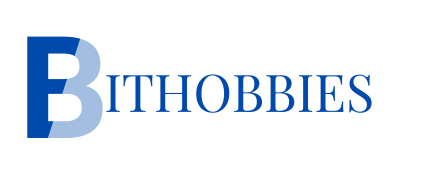Employee trust is a crucial component of any successful organization. When employees trust their employers, it fosters a positive work environment, enhances productivity, and reduces turnover. One often overlooked yet vital aspect of building this trust is the accuracy of check stubs. This article explores the profound impact that accurate paycheck stubs have on employee trust, the potential consequences of inaccuracies, and the benefits of using a free check stub maker.
Introduction
In today’s competitive business landscape, companies strive to cultivate a loyal and motivated workforce. While numerous factors contribute to employee satisfaction and trust, the role of accurate paycheck stubs cannot be underestimated. Paycheck stubs are more than just a breakdown of earnings; they represent transparency, reliability, and respect for the employees’ hard work. When employees receive their paycheck stubs, they expect the information to be correct and reflective of their efforts. Errors in these documents can lead to frustration, mistrust, and even legal complications.
Given the significance of this topic, businesses must prioritize the accuracy of paycheck stubs. In this article, we will delve into how accurate paycheck stubs influence employee trust, the potential ramifications of inaccuracies, and the steps organizations can take to ensure precision, including leveraging tools like a free check stub maker.
Why Accuracy Matters in Paycheck Stubs
Accurate paycheck stubs are a testament to an organization’s commitment to fairness and transparency. They serve as detailed records of employees’ earnings, deductions, and net pay. Any discrepancies in these records can quickly erode trust and lead to a host of issues. Here’s why accuracy is so important:
1. Financial Trust and Transparency
Employees rely on their paycheck stubs to understand how their wages are calculated. This includes regular pay, overtime, bonuses, and deductions for taxes, insurance, and other benefits. When the information on these stubs is accurate, it builds financial trust between the employer and employee. Employees feel confident that they are being compensated fairly for their work, which strengthens their trust in the organization.
2. Legal Compliance
Accurate paycheck stubs are not just a matter of trust; they are also a legal requirement. Many regions have specific laws mandating what information must be included in paycheck stubs and how it should be presented. Inaccuracies can lead to legal challenges and penalties, further damaging an organization’s reputation and trustworthiness.
3. Employee Satisfaction
Pay discrepancies or errors in paycheck stubs can lead to dissatisfaction and resentment among employees. If employees believe they are being underpaid or their deductions are incorrect, it can significantly impact their morale and productivity. Accurate paycheck stubs help ensure that employees feel valued and fairly treated, contributing to overall job satisfaction.
Consequences of Inaccurate Paycheck Stubs
The repercussions of inaccurate paycheck stubs can be far-reaching, affecting not only employee trust but also the broader organization. Some of the potential consequences include:
1. Decreased Employee Morale
Errors in paycheck stubs can lead to confusion and frustration among employees. This frustration can quickly turn into dissatisfaction, lowering overall morale. Discontented employees are less likely to be productive and engaged, which can negatively impact the company’s performance.
2. Increased Turnover
When employees lose trust in their employer due to repeated paycheck stub inaccuracies, they are more likely to seek employment elsewhere. High turnover rates can be costly for organizations, leading to increased recruitment and training expenses, as well as the loss of experienced staff.
3. Legal and Financial Risks
Inaccurate paycheck stubs can result in legal disputes and financial penalties. Employees may file complaints or lawsuits if they believe they are being underpaid or if mandatory information is missing from their pay stubs. This can result in costly legal battles and damage to the company’s reputation.
Best Practices for Ensuring Accurate Paycheck Stubs
To mitigate the risks associated with inaccurate paycheck stubs and to foster a trusting work environment, businesses should implement best practices for payroll management. Here are some strategies to ensure accuracy:
1. Use a Reliable Payroll System
Investing in a robust payroll system can significantly reduce the risk of errors. Modern payroll systems are designed to automate calculations, ensure compliance with legal requirements, and provide detailed pay stub templates. These systems can help streamline the payroll process and minimize human errors.
2. Regular Audits and Reviews
Conducting regular audits of payroll records can help identify and correct any discrepancies. Regular reviews ensure that all calculations are accurate and that employees are receiving the correct pay and deductions. This proactive approach can prevent errors from going unnoticed and foster trust among employees.
3. Training and Support
Providing training for payroll staff can enhance their understanding of payroll processes and legal requirements. This ensures that they are well-equipped to manage payroll accurately. Additionally, offering support and resources to employees can help them understand their paycheck stubs and address any concerns promptly.
4. Utilize a Free Check Stub Maker
For small businesses or those looking for cost-effective solutions, using a free check stub maker can be an excellent option. These tools allow employers to generate accurate and professional paycheck stubs quickly. By entering the necessary information, such as hours worked and deductions, businesses can create precise paycheck stubs that employees can rely on.
The Role of Technology in Payroll Accuracy
Technology plays a pivotal role in ensuring payroll accuracy. Automated payroll systems and free check stub makers are valuable tools that can streamline payroll processes and minimize errors. Here’s how technology can enhance payroll accuracy:
1. Automation of Calculations
Automated payroll systems handle complex calculations with ease, reducing the risk of manual errors. These systems can automatically calculate gross pay, deductions, taxes, and net pay, ensuring that paycheck stubs are accurate and compliant with legal requirements.
2. Real-Time Updates
Modern payroll systems provide real-time updates, allowing employers to make necessary adjustments promptly. This ensures that any changes in employee hours, benefits, or deductions are accurately reflected in their paycheck stubs, maintaining trust and transparency.
3. Easy Access to Information
Technology allows employees to access their paycheck stubs online, providing them with immediate and convenient access to their pay information. This transparency helps employees verify their earnings and deductions, further building trust in the organization.
4. Compliance Management
Payroll systems are designed to stay up-to-date with changing labor laws and regulations. This ensures that paycheck stubs are always compliant with the latest legal requirements, reducing the risk of legal disputes and penalties.
Building a Trustworthy Payroll Process
Creating a trustworthy payroll process involves more than just accurate paycheck stubs. It requires a holistic approach that encompasses communication, transparency, and continuous improvement. Here are some additional steps to build a trustworthy payroll process:
1. Transparent Communication
Clear and transparent communication with employees about payroll processes, calculations, and any changes is crucial. Providing detailed explanations of how pay is calculated and what deductions are taken can help employees understand their paycheck stubs and trust the process.
2. Addressing Concerns Promptly
When employees raise concerns about their paycheck stubs, it’s essential to address them promptly and effectively. Providing quick resolutions to any issues can prevent frustration and build trust in the payroll process.
3. Continuous Improvement
Regularly reviewing and improving payroll processes can help identify and rectify any weaknesses. Seeking feedback from employees and staying updated with best practices can ensure that the payroll process remains accurate and reliable.
Conclusion
The accuracy of paycheck stubs is a fundamental aspect of building and maintaining employee trust. Accurate paycheck stubs reflect an organization’s commitment to fairness, transparency, and legal compliance. By leveraging modern payroll systems, conducting regular audits, and using tools like a free check stub maker, businesses can ensure the precision of their paycheck stubs. This, in turn, enhances employee satisfaction, reduces turnover, and mitigates legal and financial risks. Prioritizing the accuracy of paycheck stubs is not just a best practice; it is a crucial investment in the trust and success of the organization.







More Stories
Diverse Options of Uniform Supplier in Dubai
Unleash Potential at Barber Academy Dorset
How much does Umrah package cost?